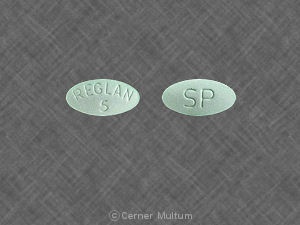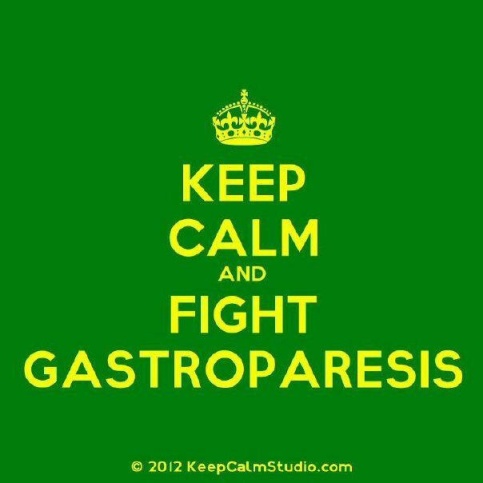First of all… Happy Wednesday! We are (almost) half way through the week! 🙂
Second of all, yesterday I wrote a guest post for the lovely Olivia at Liv Lives Life while she was on vacation. In my post I share 5 Surprising Foods That Contain Eggs. It’s a must-read for vegans, those with egg allergies/intolerances, or just for people looking for some interesting tid bits.
Next up I need to share a health update because I realized yesterday I have been promising that for a week or two now and have failed to deliver. I’m just going to throw it all out there and then move on because I’m still kind of frustrated with this whole thing… ready? 😉
(This is obviously not your usual WIAW, but as always thanks to Jenn for hosting this weekly party!)
Okay. So two and a half weeks ago approximately I went in to have a gastric emptying study performed at my local hospital. A gastric emptying study is basically where you eat food that has been injected with radioactive markers and then for 1-4 hours depending on that particular hospital’s protocol they x-ray your stomach to track how fast it is digesting the food. They usually will feed you a few eggs but in my case I had to bring in my own gluten-free oatmeal because of my egg and wheat allergies.
(Source)
At 7:00AM that morning I went the hospital with my mom and checked in. 30 minutes later the nurse took me back to a preparation room where she made my oatmeal in a styrofoam cup and I ate it while answering some basic health questions about my symptoms. The nurse asked if I wanted any sugar or splenda which I politely declined. She was quite impressed by my ability to eat all of the oatmeal. At one point she actually said “Try your hardest to get it down.” I was slightly confused. I’ve always preferred plain oatmeal and since I hadn’t had it in forever (on account of hit hurting my stomach) I was glad for an excuse to have some.
After I ate the oatmeal I asked if she wanted me to just throw it away. She quickly said no and pulled out a brand new trash bag to put it in. I didn’t quite understand until she tied up the bag and put it in a radioactive waste bin and secured the lid. I laughed and told her that I almost forgot that it was full of harmful chemicals.
When the prep was done she took me back to a dark room where a kind of futuristic machine was located. I had to lay down on a skinny, padded slab and she put in elbow props and a pillow beneath my knee so I was more comfortable. Then she raised the platform so I was high off the ground, and moved me forward so that my stomach was beneath the white x-ray contraption. She told me that it would last 1 1/2 hours and that it would go by quickly if I tried to fall asleep.
Well, I wish I had known that before or I wouldn’t have worn my contacts. I did manage to fall asleep a few times, but each time I did I had pretty crazy dreams about pizza, my stomach being a monster and trying to eat me… and probably even more but I forget now.
The 1 1/2 hours passed by quite slowly but eventually I was done and she lowered the slab so that I could get off. After that she walked me back out to my mom in the waiting room and we left.
Then I just waited to hear back my results from the hospital.
That next week I called in and after a wild goose chase of me calling them, them calling me, my mom calling them, them calling me… I finally got through to hear my results. The nurse told me that my gastric emptying study showed delayed (or slow) gastric emptying.
Gastroparesis is the technical term for delayed gastric emptying.
*I put an asterisk by the symptoms that I frequently have below.
The most common symptoms of gastroparesis are:
- Chronic nausea (sometimes)
- Chronic diarrhea (or constipation)*
- Vomiting (especially of undigested food)
Other symptoms include:
- Palpitations (sometimes)
- Heartburn*
- Abdominal pain*
- Abdominal bloating*
- Erratic blood glucose levels (I have been able to control this with lower sugar meals)
- Lack of appetite*
- Gastroesophageal reflux*
- Spasms of the stomach wall*
Morning nausea may also indicate gastroparesis. Vomiting may not occur in all cases, as sufferers may adjust their diets to include only small amounts of food (this would be me, but thankfully while I have severely limited my diet to prevent nausea most of the time, I am getting enough calories in to maintain my weight and energy for the most part)*
Source: wikipedia
Here are some common complications due to gastroparesis:
- Fluctuations in blood glucose due to unpredictable digestion times (in diabetic patients)
- General malnutrition due to the symptoms of the disease (which frequently include vomiting and reduced appetite) as well as the dietary changes necessary to manage it
- Severe fatigue and weight loss due to calorie deficit
- Intestinal obstruction due to the formation of bezoars (solid masses of undigested food)
- Bacterial infection due to overgrowth in undigested food
Source: Again, wikipedia. They are just too helpful sometimes 🙂
There are a variety of treatment options, including:
- Medication
- Low fiber, low fat diet
- Smaller meals
- Liquid diet
- FODMAPS diet
- Surgery
Source: just general research on the subject matter
When the nurse told me that I had slow gastric emptying, she also said that I would need to schedule an appointment to speak with my doctor about medication options. Reglan and Domperidone were the two that she mentioned if I remember correctly.
I still haven’t been in to see the doctor since I live a few hours away and she is only available during the week with regular business hours. The other reason is that I kind of don’t have any plans to take the medicine that she is wanting to prescribe me.
That may sound crazy to some of you because of how much I complain about my stomach but just hear me out.
While gastroparesis may sound like a diagnosis, it’s really not. Much like IBS slow/rapid gastric emptying is just an umbrella diagnosis. There is no known cause for idipathic gastroparesis (slow gastric emptying without diabetes or surgery being the probably root problem) although there is much speculation.
Gastroparesis just like my food allergies is most likely the result of some bigger cause like leaky gut, small intestinal bacterial overgrowth, autoimmune disease, diabetes, etc. Medication will not heal me. It would just mask the symptoms somewhat if it actually was effective.
And that’s another portion of why I don’t really want to take the medicine. Reglan in particular is meant to be a short term medication used for only a few weeks.
Reglan can also have some terrible side effects:
- Dizziness or drowsiness
- Muscle spasms
- Tardive dyskinesia
- Parkinson-like symptoms
- Trouble sleeping
- Mood changes
- Headaches
Source: Health Central
So you can see why I’m not too keen on taking it, right? Plus, it wouldn’t cure the underlying cause of all of my problems which is my ultimate goal.
I have been looking into some gastroparesis blogs for tips though on managing the symptoms. Most are ones that I already try to follow but I will let you guys know if I find anything particularly useful.
—————————————————————————————————————————————
There are many who say that they are amazed that I deal with the daily stomach pain, but I feel like this picture from Pinterest explains my thoughts on the matter perfectly:
————————————————————————————————————————————————-
(Source)
Just share your thoughts for today!
Whatever you want. Inspirational quotes. What you ate for WIAW. Your plans for the rest of the week. I’m all ears 🙂












